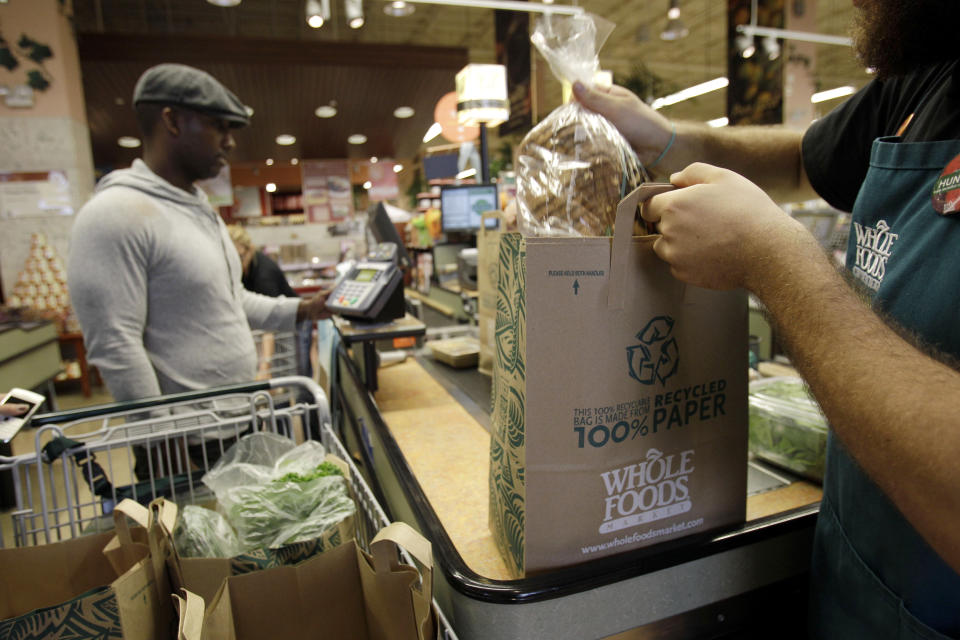How the ban on plastics 'misses the mark' on sustainability: Trade group
Across the world, the spread of plastic waste—and its effects on the environment — has become a scourge that environmental advocates have sought to stamp out.
Recently, the intensifying “war on plastic” has scored two victories. First, Whole Foods became the first national grocer to eliminate plastic straws from all its stores — announcing it will do so by July of this year. The upscale grocery chain, which is owned by Amazon (AMZN), will also begin using smaller plastic produce bags to further reduce use of the material.
And across the Atlantic, the U.K. government has announced that plastic straws and drink stirrers—along with cotton swabs with plastic stems—will be banned from sale beginning in April of 2020.
However, the plastic industry has launched a counter-offensive against its foes.
“Often times, we get caught up in emotion—and that’s what many of these bans are driven by,” Matt Seaholm, the executive director of the American Progressive Bag Alliance (APBA), told Yahoo Finance’s YFi PM.
Plastic manufacturers “put sustainability at the forefront of everything we do,” Seaholm said, “and when it comes to bag bans, they just miss the mark on sustainability.”
Seaholm added that for environmental and economic reasons, plastic bags “come out on top every time” when compared to other ways to transport groceries.
The APBA, which represents the U.S. plastic bag manufacturing industry, has launched a number of counter-offensives against anti-plastic initiatives around the country.
And despite commonly held beliefs that alternative materials (like paper) are more environmentally friendly, the APBA insists the reality can prove just the opposite.
“It comes down to the amount of materials used, the amount of energy in the production, the amount of energy in the transportation,” Seaholm said.
“It takes seven trucks to take the same number of paper bags as it does one truck of plastic bags,” he added.

Yet companies like Whole Foods see significant environmental payoff from their initiatives. The grocer estimates its new measures will reduce an estimated 800,000 pounds of plastic per year. And they are far from alone.
Earlier this year, Disney (DIS) said it aimed to remove plastic straws from its U.S. theme parks by the middle of 2019.
Separately, Starbucks (SBUX) announced last year that it’s eliminating single-use plastic straws from its more than 28,000 locations around the world by 2020. The beverage giant claims its move will get rid of more than one billion plastic straws per year from its stores.
However, the APBA says the spread of plastic bag bans can bring negative economic consequences.
Large corporations such as Starbucks or Disney are well situated to handle any additional costs from plastic elimination. But Seaholm says that “these types of bans raise costs on small businesses. They’re the ones that can least afford it. But it’s also their customers that pay the penalty at the end of the day.”
Anti-plastic advocates say those costs are outweighed by the mounting environmental damage caused by the increase of plastic waste around the world.
According to the United Nations, more than 8.3 billion tons of plastic have been produced since the early 1950s. About 60% of that plastic has ended up in either a landfill or the natural environment.
Additionally, humans are creating about 300 million tons of plastic waste per year, the organization said.

 Yahoo Finance
Yahoo Finance 
